Old Time Christmas in a Country Home
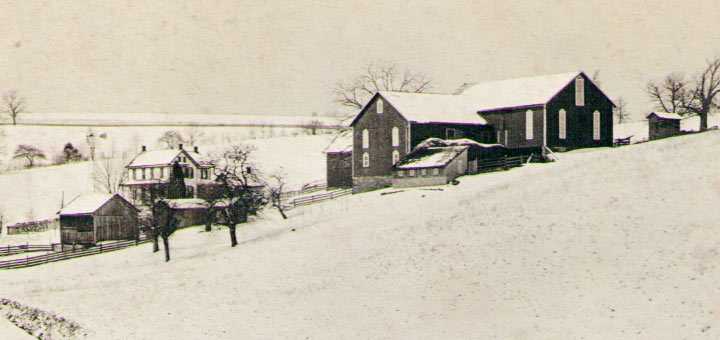
This story was shared in the December, 1983 issue of the “Beech Grove.” It first appeared in the “Lancaster County Guardian” in January, 1871 and was included with other folk culture stories by Alfred L. Shoemaker. The details are similar to what our Hagenbuch ancestors would have experienced in Pennsylvania in the mid-1800s. It was written from the memories of one Benjamin Bausman.
It was the week before Christmas. A busy week in the country home, for then the butchering had to be done. An ox and four hogs were slaughtered. The second day before Christmas the cookie baking was done. Large tables in the bake house were covered with cookies, in all manner of forms: birds, horses, hearts, lambs, stars, all carefully spread out on patty-pans. We children, meanwhile, watched the progress of events, burdening the bakers with many curious questions. A great mystery to my child mind was the large bake oven, which for a season seemed to devour all put into it. I peered into its glowing cavern and watched with watering mouth the nut brown cookies which it brought forth.
It was a stormy Christmas Eve. The sleet rattled against the windows. Around the large ten plate stove, filled with hickory logs, sat the family. There was no Christmas tree. Then, as now, this tree was more of a town than country growth. The smaller children were still allowed to believe in a real bodily Christkindel (Christ Child). He would surely come that night. Where will mother set the baskets this time? In a dark front room; so the parlor becomes the reception room of the kind heavenly visitor. Two bread baskets with a clean white cloth spread in them are placed on chairs. The little innocents, half frightened, hold on to the mother’s dress, as they follow her into the parlor, and watch the arranging of the baskets. Many puzzling little troubles they have. When will He come? Where will He get in? Ought not the front door be left open? Will the baskets be large enough?
What a fearful noise the dogs are making! Hist! Somebody’s knocking. “Come in”, says father. And in they come, such as they are. A half dozen jovial fellows, led by a so-called Belsnickel!
“O Ma!”, screams a group of us smaller children and seize hold of her dress, like an affrighted brood that rushes under the wings of a mother hen when the hawk is after them. Belsnickel may either mean a fur clad Nicholas or a flogging Nicholas. In the wintry Christmas nights he is usually robed in furs and carries his whip with him.
Our Belsnickel is, most likely, some well known neighbor friend. Under his ugly mask (the Schnarraffel-gesicht) and an outlandish dress, such as no child ever saw a mortal wear before, no one can tell who he is. We children tremble as in the presence of an unearthly being. The “Nickel” tries to be pleasant, jabbers in some unknown tongue, and takes a few chestnuts and candies out of his vast bundle on his back and throws them on the floor for the larger boys. One after another they shyly pick up a gift. Among these older boys is a self-willed fellow who sometimes behaves rudely. Whenever he picks up something, Nickel thwacks a long whip across his back, across his only. Whereupon the little ones scream and hold on to their Mama with a firm grip, and the older ones laugh aloud. The guilty boy puts his hand where the whip has made an impression. Again the unknown being puts his large working hand into the bag and scatters gifts, and again cracks his whip on the bad boy. How does this ugly man know who has been naughty?
Ere the little ones are tucked in bed, mother must repeat to them the story of Bethlehem. Then they kneel at her lap and pray to the dear Christ Child. Half frightened they put their ears to the keyhole of the parlor door to listen whether He is at work already at the baskets. Then they scamper off to their low beds, like lambs leaping into the fold. With their heads under the cover, they discuss the frightful visitor with the long whip, and the blessed Christ Child, that carries no whip, and they fall asleep over their talk.
Hours before dawn the little folks call the parents. They must see their baskets. Shoeless, they hopefully follow their mother to the full baskets, full of just the things they had been wishing for. All members of the family not needed to prepare the dinner go to church. The pastor preaches about, and the congregation praises God for, the birth of our Saviour. Meanwhile, the whole house is redolent with the odor of the roasting going on in the kitchen and the little ones make merry over their stores of goods and thankfully prattle about the happy birthday of our Saviour.
It takes a large table, with much on it, for such a family. And the best that can be had is there, the best dinner of the year. All the children are taught to pray at table, but to pray silently. The father folds his hands on his down-turned plate, and all the children fold theirs in their laps, and all close their eyes and offer a silent prayer. The father, in his earnestness, unconsciously prays in a whisper that can almost be heard.
Eating is the exquisite enjoyment for a healthy child. No tongue can describe the pleasure it derives from it. Its appetite and palate enjoy food with the keenest relish. A Christmas dinner makes its heart glad a month before it comes. And as plate after plate is emptied, every nook and corner of its being is filled with joy. Fill the plate well, mother. The child’s stomach is wonderfully elastic, like the boy’s pockets, it can hold a little world of nuts, cakes, candies, turkey, sweet potatoes, celery, sausages, fastnachts, custard, apple pie, etc. Look at it! The face blushes and beams with fatness, and the glad heart pumps like a well oiled piston of a locomotive. It is a rich treat to see a child enjoying his Christmas dinner. All past grievances, all present and future tasks are forgotten under the charm of the gratified appetite. We enjoy our meals, in the fullest sense, but for one short period in life – in childhood.
May we all enjoy this Christmas as a child does – in wonder, happiness, and love.

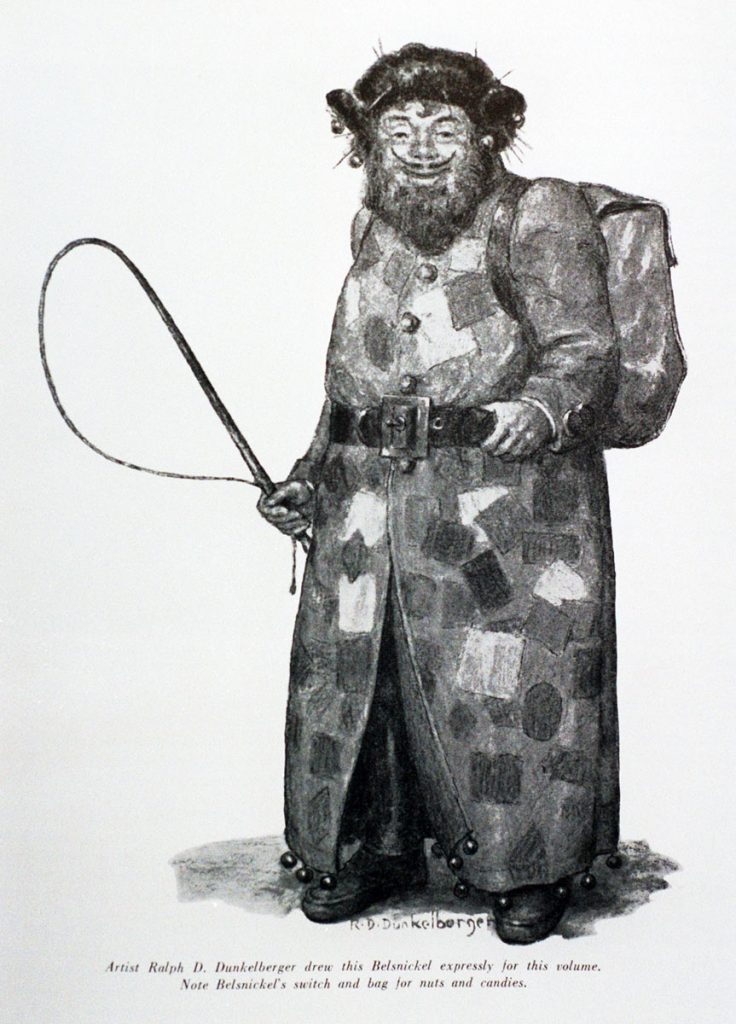
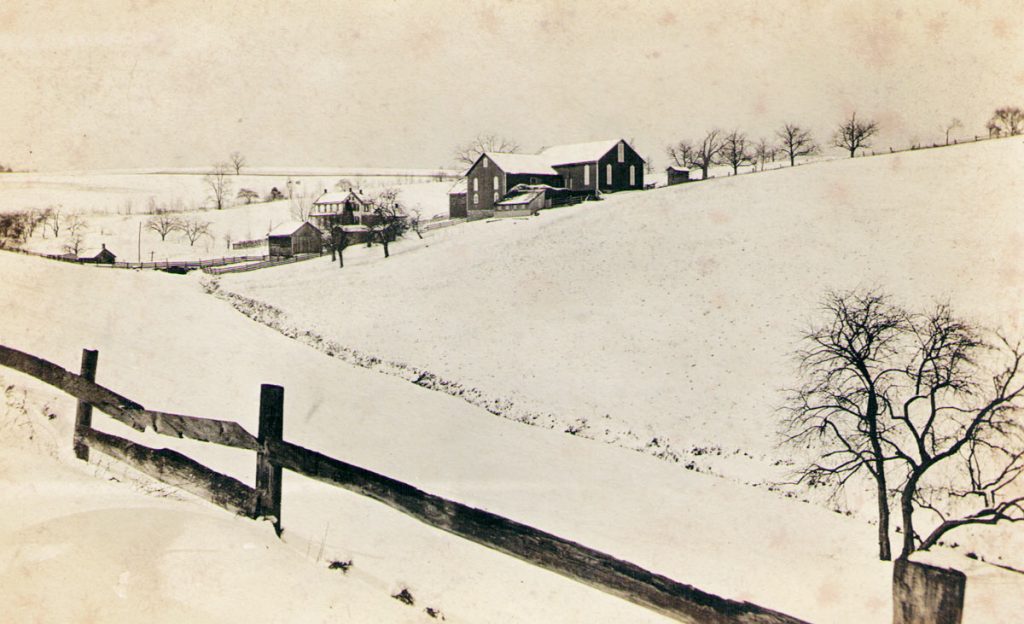
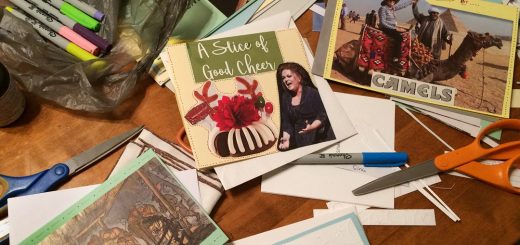

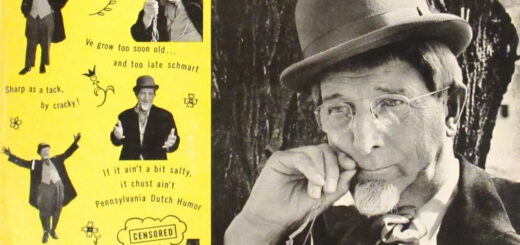









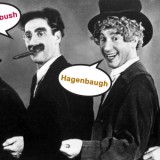



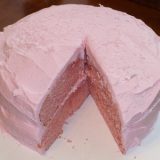
Thanks for sharing this story. I knew about the “Nickel” but never heard this story.